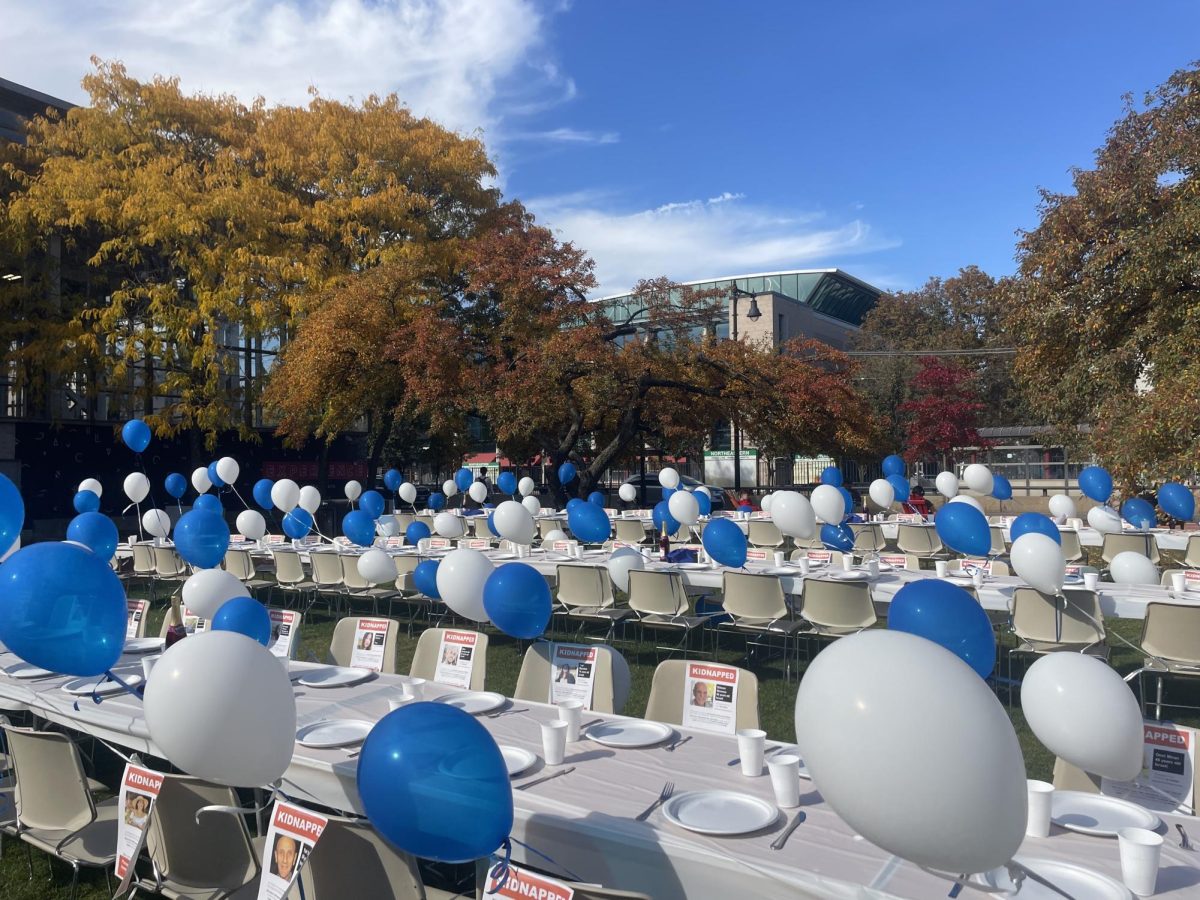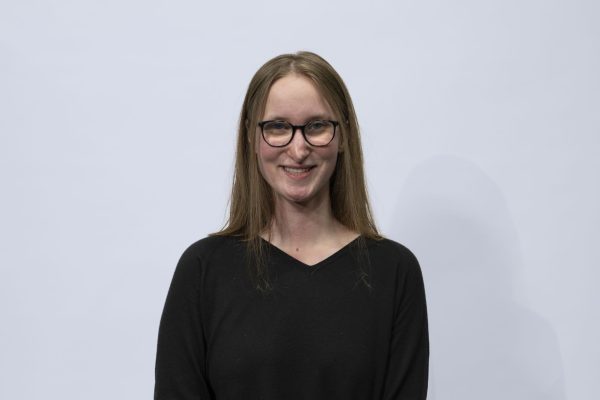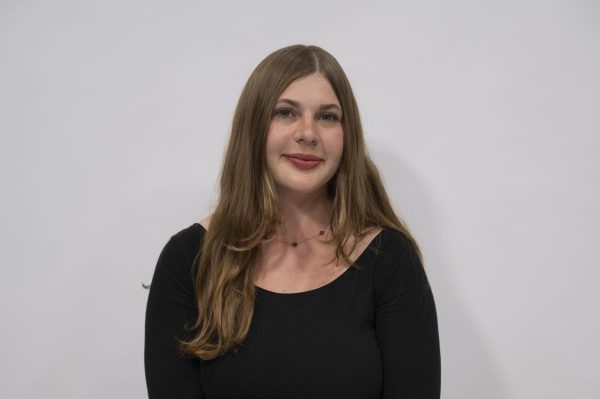A stillness engulfed Cabot Quad, which was covered with an expanse of empty tables and chairs for two and a half hours Friday afternoon as passersby observed a Shabbat memorial organized for Hamas hostages. One hundred and sixty chairs lined tables laid out for a traditional Shabbat dinner, with plates and forks alongside bottles of untouched grape juice and challah. Blue and white balloons tied to the chairs swayed in the wind as the sun beamed down on the memorial, but the surroundings remained quiet.
The demonstration was organized by a group of Jewish and Israeli organizations on campus including Northeastern Hillel, Huskies for Israel, Northeastern Mishelanu, Chabad at Northeastern, Zeta Beta Tau, Alpha Epsilon Pi, the Israeli American Council and Stand With Us. It honored the hundreds of people Hamas has taken hostage since Oct. 7.
Around the world, communities set up empty tables to honor the hostages before Shabbat, the holiest night of the week. Although the number of hostages is believed to be around 229 people, only 160 chairs could fit on Cabot Quad, according to Hillel member Inbar Ofer, a fifth-year computer science and behavioral neuroscience combined major. Since Oct. 7, the day of the first attack, there have been four Shabbats that the hostages missed.
“Our brains have a hard time visualizing statistics, so just seeing it all in front of me it really hit just how many people are still hostage,” Ofer said. “I mean, only 160 [chairs] fit on the quad, and so we were short by 70 chairs and it still felt massive to me.”
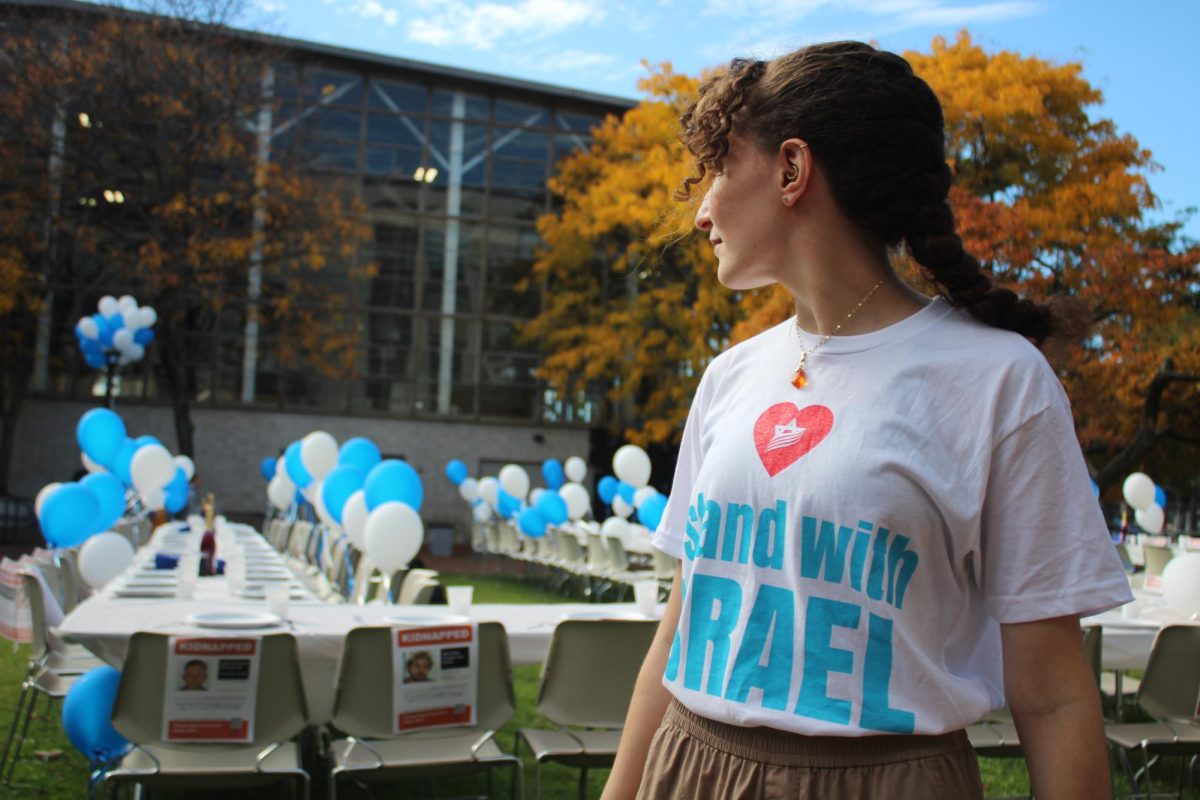
Students with family and friends in Israel say they constantly worry for their loved ones’ safety. Hillel member Shira Ashkenazi, a third-year international affairs major who was born and raised in Kiryat Ono, a suburb of Tel Aviv, said she and other Israeli students are still grappling with the loss and violence.
“It’s really hard to be so far away from home and feel so helpless and powerless,” she said. “It’s so important to be with [my] community right now and to partake in things like this for all those lives, for all those kidnapped, for all our friends and families. We just want them to return safely home.”
This memorial comes during a period of heightened antisemitism, Ofer said. The Biden administration announced on Monday that the Department of Homeland Security, the Department of Justice and the Department of Education would work in conjunction with college campus law enforcement to address the rising threat of antisemitism.
In response to the Oct. 7 attacks, President of Huskies for Israel Mark Antar, a second-year economics and finance combined major, said he intentionally shifted his focus for the organization from “education-heavy events” to community gatherings to support Jewish and Israeli students.
“It’s really so important for us to come together now more than ever to help one another because if we don’t help each other, who’s going to help us? We are our strongest assets,” Antar said. “We’re our strongest allies.”
Since the first attack, students say they have connected to other Jewish and Israeli students on campus in search of a community. “I know that ever since this started, I’ve met so many more Jews and Israelis on campus that I didn’t know were here,” Ashkenazi said.
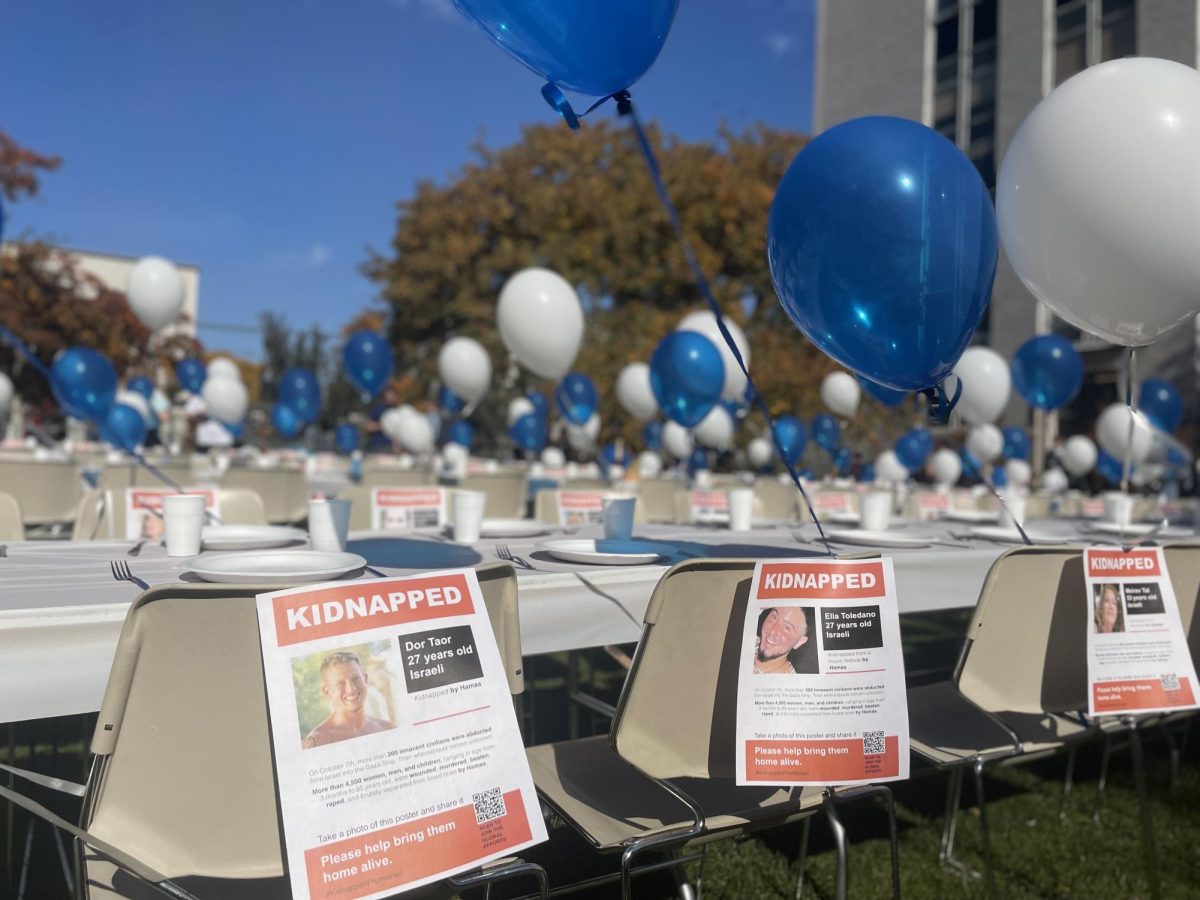
“I’ve been participating a lot in Hillel events [since Oct. 7] because it feels like the only thing I’m able to do that means something in the context of this,” said Isaac Kaper, a fifth-year computer science and computer engineering combined major. “I think for me, with everything going on and the subsequent negative reactions, it was more important than ever to just feel at home with other people who understand what is happening in order to support each other as we get through this time.”
President of Hillel Julia Gilinsky, a fourth-year accounting major, says Hillel continues to host Shabbat dinners every Friday, which she said gives students an opportunity to find community.
“We have more than a hundred people coming out every week. The numbers have never been this great,” she said. “It’s really heartwarming to see how close people have gotten to each other… it’s really unfortunate that our community has gotten so much closer because of this.”



